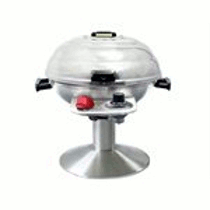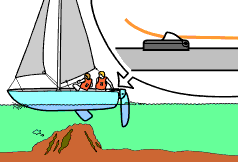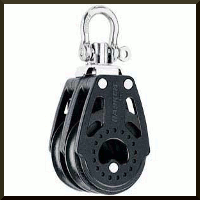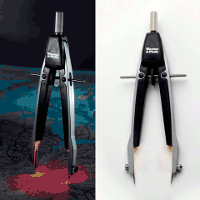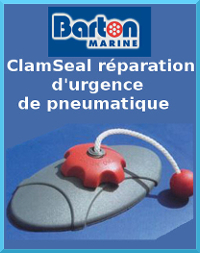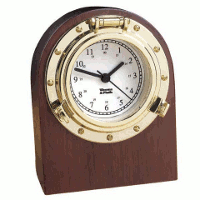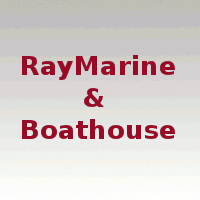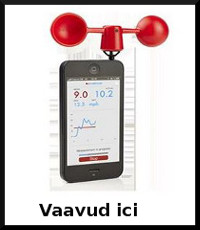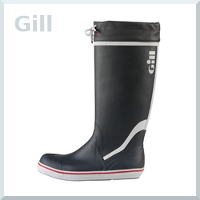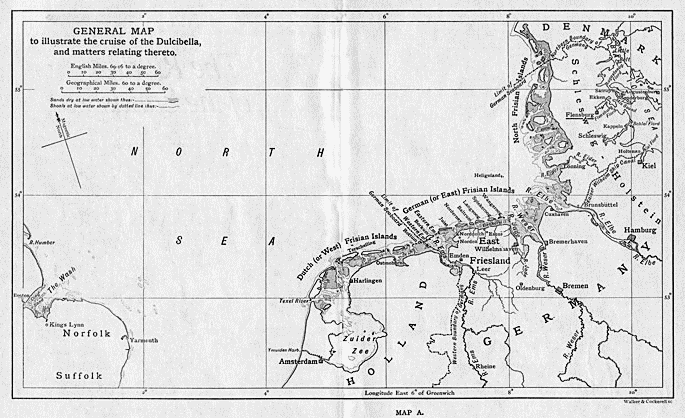Note from Boathouse:
It’s going to be a long winter and winter for most is a season to research and plan upcoming trips, day dream about boating and also read about boating. Presented here is chapter one of ‘The Riddle of the sands’ an excellent pre WWI sailing adventure. Every week Boathouse will present a chapter or two of this public domain work and hopefully this will ease the passage of winter for our readers. If you are inpatient and can’t wait for each weeks installment you can read the entire book at gutenburg.org If you would rather listen to the book here is a link to an audio version: Preface, Chapter 1
If you would like to be notified when posts are added to this blog please send an email to blogadmin@boathouse.ca with the words ‘Subscribe to blog’ as the subject.
Have fun! Post a comment, let us know what you think.
Boathouse
Preface
A WORD about the origin and authorship of this book.
In October last (1902), my friend ‘Carruthers’ visited me in my chambers, and, under a provisional pledge of secrecy, told me frankly the whole of the adventure described in these pages. Till then I had only known as much as the rest of his friends, namely, that he had recently undergone experiences during a yachting cruise with a certain Mr ‘Davies’ which had left a deep mark on his character and habits.
At the end of his narrative—which, from its bearing on studies and speculations of my own, as well as from its intrinsic interest and racy delivery, made a very deep impression on me—he added that the important facts discovered in the course of the cruise had, without a moment’s delay, been communicated to the proper authorities, who, after some dignified incredulity, due in part, perhaps, to the pitiful inadequacy of their own secret service, had, he believed, made use of them, to avert a great national danger. I say ‘he believed’, for though it was beyond question that the danger was averted for the time, it was doubtful whether they had stirred a foot to combat it, the secret discovered being of such a nature that mere suspicion of it on this side was likely to destroy its efficacy.
There, however that may be, the matter rested for a while, as, for personal reasons which will be manifest to the reader, he and Mr ‘Davies’ expressly wished it to rest.
But events were driving them to reconsider their decision. These seemed to show that the information wrung with such peril and labour from the German Government, and transmitted so promptly to our own, had had none but the most transitory influence on our policy. Forced to the conclusion that the national security was really being neglected, the two friends now had a mind to make their story public; and it was about this that ‘Carruthers’ wished for my advice. The great drawback was that an Englishman, bearing an honoured name, was disgracefully implicated, and that unless infinite delicacy were used, innocent persons, and, especially, a young lady, would suffer pain and indignity, if his identity were known. Indeed, troublesome rumours, containing a grain of truth and a mass of falsehood, were already afloat.
After weighing both sides of the question, I gave my vote emphatically for publication. The personal drawbacks could, I thought, with tact be neutralized; while, from the public point of view, nothing but good could come from submitting the case to the common sense of the country at large. Publication, therefore, was agreed upon, and the next point was the form it should take. ‘Carruthers’, with the concurrence of Mr ‘Davies’, was for a bald exposition of the essential facts, stripped of their warm human envelope. I was strongly against this course, first, because it would aggravate instead of allaying the rumours that were current; secondly, because in such a form the narrative would not carry conviction, and would thus defeat its own end. The persons and the events were indissolubly connected; to evade, abridge, suppress, would be to convey to the reader the idea of a concocted hoax. Indeed, I took bolder ground still, urging that the story should be made as explicit and circumstantial as possible, frankly and honestly for the purpose of entertaining and so of attracting a wide circle of readers. Even anonymity was undesirable. Nevertheless, certain precautions were imperatively needed.
To cut the matter short, they asked for my assistance and received it at once. It was arranged that I should edit the book; that ‘Carruthers’ should give me his diary and recount to me in fuller detail and from his own point of view all the phases of the ‘quest’, as they used to call it; that Mr ‘Davies’ should meet me with his charts and maps and do the same; and that the whole story should be written, as from the mouth of the former, with its humours and errors, its light and its dark side, just as it happened; with the following few limitations. The year it belongs to is disguised; the names of persons are throughout fictitious; and, at my instance certain slight liberties have been taken to conceal the identity of the English characters.
Remember, also that these persons are living now in the midst of us, and if you find one topic touched on with a light and hesitating pen, do not blame the Editor, who, whether they are known or not, would rather say too little than say a word that might savour of impertinence.
E. C.
March 1903
I.
The Letter
I HAVE read of men who, when forced by their calling to live for long periods in utter solitude—save for a few black faces—have made it a rule to dress regularly for dinner in order to maintain their self-respect and prevent a relapse into barbarism. It was in some such spirit, with an added touch of self-consciousness, that, at seven o’clock in the evening of 23rd September in a recent year, I was making my evening toilet in my chambers in Pall Mall. I thought the date and the place justified the parallel; to my advantage even; for the obscure Burmese administrator might well be a man of blunted sensibilities and coarse fibre, and at least he is alone with nature, while I—well, a young man of condition and fashion, who knows the right people, belongs to the right clubs, has a safe, possibly a brilliant, future in the Foreign Office—may be excused for a sense of complacent martyrdom, when, with his keen appreciation of the social calendar, he is doomed to the outer solitude of London in September. I say ‘martyrdom’, but in fact the case was infinitely worse. For to feel oneself a martyr, as everybody knows, is a pleasurable thing, and the true tragedy of my position was that I had passed that stage. I had enjoyed what sweets it had to offer in ever dwindling degree since the middle of August, when ties were still fresh and sympathy abundant. I had been conscious that I was missed at Morven Lodge party. Lady Ashleigh herself had said so in the kindest possible manner, when she wrote to acknowledge the letter in which I explained, with an effectively austere reserve of language, that circumstances compelled me to remain at my office. ‘We know how busy you must be just now’, she wrote, ‘and I do hope you won’t overwork; we shall all miss you very much.’ Friend after friend ‘got away’ to sport and fresh air, with promises to write and chaffing condolences, and as each deserted the sinking ship, I took a grim delight in my misery, positively almost enjoying the first week or two after my world had been finally dissipated to the four bracing winds of heaven.
I began to take a spurious interest in the remaining five millions, and wrote several clever letters in a vein of cheap satire, indirectly suggesting the pathos of my position, but indicating that I was broad-minded enough to find intellectual entertainment in the scenes, persons, and habits of London in the dead season. I even did rational things at the instigation of others. For, though I should have liked total isolation best, I, of course, found that there was a sediment of unfortunates like myself, who, unlike me, viewed the situation in a most prosaic light. There were river excursions, and so on, after office-hours; but I dislike the river at any time for its noisy vulgarity, and most of all at this season. So I dropped out of the fresh air brigade and declined H—’s offer to share a riverside cottage and run up to town in the mornings. I did spend one or two week-ends with the Catesbys in Kent; but I was not inconsolable when they let their house and went abroad, for I found that such partial compensations did not suit me. Neither did the taste for satirical observation last. A passing thirst, which I dare say many have shared, for adventures of the fascinating kind described in the New Arabian Nights led me on a few evenings into some shady haunts in Soho and farther eastward; but was finally quenched one sultry Saturday night after an hour’s immersion in the reeking atmosphere of a low music-hall in Ratcliffe Highway, where I sat next a portly female who suffered from the heat, and at frequent intervals refreshed herself and an infant from a bottle of tepid stout.
By the first week in September I had abandoned all palliatives, and had settled into the dismal but dignified routine of office, club, and chambers. And now came the most cruel trial, for the hideous truth dawned on me that the world I found so indispensable could after all dispense with me. It was all very well for Lady Ashleigh to assure me that I was deeply missed; but a letter from F—, who was one of the party, written ‘in haste, just starting to shoot’, and coming as a tardy reply to one of my cleverest, made me aware that the house party had suffered little from my absence, and that few sighs were wasted on me, even in the quarter which I had assumed to have been discreetly alluded to by the underlined all in Lady Ashleigh’s ‘we shall all miss you’. A thrust which smarted more, if it bit less deeply, came from my cousin Nesta, who wrote: ‘It’s horrid for you to have to be baking in London now; but, after all, it must be a great pleasure to you’ (malicious little wretch!) ‘to have such interesting and important work to do.’ Here was a nemesis for an innocent illusion I had been accustomed to foster in the minds of my relations and acquaintances, especially in the breasts of the trustful and admiring maidens whom I had taken down to dinner in the last two seasons; a fiction which I had almost reached the point of believing in myself. For the plain truth was that my work was neither interesting nor important, and consisted chiefly at present in smoking cigarettes, in saying that Mr So-and-So was away and would be back about 1st October, in being absent for lunch from twelve till two, and in my spare moments making précis of—let us say—the less confidential consular reports, and squeezing the results into cast-iron schedules. The reason of my detention was not a cloud on the international horizon—though I may say in passing that there was such a cloud—but a caprice on the part of a remote and mighty personage, the effect of which, ramifying downwards, had dislocated the carefully-laid holiday plans of the humble juniors, and in my own small case had upset the arrangement between myself and K—, who positively liked the dog-days in Whitehall.
Only one thing was needed to fill my cup of bitterness, and this it was that specially occupied me as I dressed for dinner this evening. Two days more in this dead and fermenting city and my slavery would be at an end. Yes, but—irony of ironies!—I had nowhere to go to! The Morven Lodge party was breaking up. A dreadful rumour as to an engagement which had been one of its accursed fruits tormented me with the fresh certainty that I had not been missed, and bred in me that most desolating brand of cynicism which is produced by defeat through insignificance. Invitations for a later date, which I had declined in July with a gratifying sense of being much in request, now rose up spectrally to taunt me. There was at least one which I could easily have revived, but neither in this case nor in any other had there been any renewal of pressure, and there are moments when the difference between proposing oneself and surrendering as a prize to one of several eagerly competing hostesses seems too crushing to be contemplated. My own people were at Aix for my father’s gout; to join them was a pis aller whose banality was repellent. Besides, they would be leaving soon for our home in Yorkshire, and I was not a prophet in my own country. In short, I was at the extremity of depression.
The usual preliminary scuffle on the staircase prepared me for the knock and entry of Withers. (One of the things which had for some time ceased to amuse me was the laxity of manners, proper to the season, among the servants of the big block of chambers where I lived.) Withers demurely handed me a letter bearing a German post-mark and marked ‘Urgent’. I had just finished dressing, and was collecting my money and gloves. A momentary thrill of curiosity broke in upon my depression as I sat down to open it. A corner on the reverse of the envelope bore the blotted legend: ‘Very sorry, but there’s one other thing—a pair of rigging screws from Carey and Neilson’s, size 1-3/8, galvanized.’ Here it is:
Yacht ‘Dulcibella,’
Flensburg, Schleswig-Holstein, 21st Sept.
DEAR CARRUTHERS,—I daresay you’ll be surprised at hearing from me, as it’s ages since we met. It is more than likely, too, that what I’m going to suggest won’t suit you, for I know nothing of your plans, and if you’re in town at all you’re probably just getting into harness again and can’t get away. So I merely write on the offchance to ask if you would care to come out here and join me in a little yachting, and, I hope, duck shooting. I know you’re keen on shooting, and I sort of remember that you have done some yachting too, though I rather forget about that. This part of the Baltic—the Schleswig fiords—is a splendid cruising-ground—A 1 scenery—and there ought to be plenty of duck about soon, if it gets cold enough. I came out here via Holland and the Frisian Islands, starting early in August. My pals have had to leave me, and I’m badly in want of another, as I don’t want to lay up yet for a bit. I needn’t say how glad I should be if you could come. If you can, send me a wire to the P.O. here. Flushing and on by Hamburg will be your best route, I think. I’m having a few repairs done here, and will have them ready sharp by the time your train arrives. Bring your gun and a good lot of No. 4’s; and would you mind calling at Lancaster’s and asking for mine, and bringing it too? Bring some oilskins. Better get the eleven-shilling sort, jacket and trousers—not the ‘yachting’ brand; and if you paint bring your gear. I know you speak German like a native, and that will be a great help. Forgive this hail of directions, but I’ve a sort of feeling that I’m in luck and that you’ll come. Anyway, I hope you and the F.O. both flourish. Good-bye.
Yours ever, ARTHUR H. DAVIES.
Would you mind bringing me out a prismatic compass, and a pound of Raven Mixture.
This letter marked an epoch for me; but I little suspected the fact as I crumpled it into my pocket and started languidly on the voie douloureuse which I nightly followed to the club. In Pall Mall there were no dignified greetings to be exchanged now with well-groomed acquaintances. The only people to be seen were some late stragglers from the park, with a perambulator and some hot and dusty children lagging fretfully behind; some rustic sightseers draining the last dregs of the daylight in an effort to make out from their guide-books which of these reverend piles was which; a policeman and a builder’s cart. Of course the club was a strange one, both of my own being closed for cleaning, a coincidence expressly planned by Providence for my inconvenience. The club which you are ‘permitted to make use of’ on these occasions always irritates with its strangeness and discomfort. The few occupants seem odd and oddly dressed, and you wonder how they got there. The particular weekly that you want is not taken in; the dinner is execrable, and the ventilation a farce. All these evils oppressed me to-night. And yet I was puzzled to find that somewhere within me there was a faint lightening of the spirits; causeless, as far as I could discover. It could not be Davies’s letter. Yachting in the Baltic at the end of September! The very idea made one shudder. Cowes, with a pleasant party and hotels handy, was all very well. An August cruise on a steam yacht in French waters or the Highlands was all very well; but what kind of a yacht was this? It must be of a certain size to have got so far, but I thought I remembered enough of Davies’s means to know that he had no money to waste on luxuries. That brought me to the man himself. I had known him at Oxford—not as one of my immediate set; but we were a sociable college, and I had seen a good deal of him, liking him for his physical energy combined with a certain simplicity and modesty, though, indeed, he had nothing to be conceited about; liked him, in fact, in the way that at that receptive period one likes many men whom one never keeps up with later. We had both gone down in the same year—three years ago now. I had gone to France and Germany for two years to learn the languages; he had failed for the Indian Civil, and then had gone into a solicitor’s office. I had only seen him since at rare intervals, though I admitted to myself that for his part he had clung loyally to what ties of friendship there were between us. But the truth was that we had drifted apart from the nature of things. I had passed brilliantly into my profession, and on the few occasions I had met him since I made my triumphant début in society I had found nothing left in common between us. He seemed to know none of my friends, he dressed indifferently, and I thought him dull. I had always connected him with boats and the sea, but never with yachting, in the sense that I understood it. In college days he had nearly persuaded me into sharing a squalid week in some open boat he had picked up, and was going to sail among some dreary mud-flats somewhere on the east coast. There was nothing else, and the funereal function of dinner drifted on. But I found myself remembering at the entrée that I had recently heard, at second or third hand, of something else about him—exactly what I could not recall. When I reached the savoury, I had concluded, so far as I had centred my mind on it at all, that the whole thing was a culminating irony, as, indeed, was the savoury in its way. After the wreck of my pleasant plans and the fiasco of my martyrdom, to be asked as consolation to spend October freezing in the Baltic with an eccentric nonentity who bored me! Yet, as I smoked my cigar in the ghastly splendour of the empty smoking-room, the subject came up again. Was there anything in it? There were certainly no alternatives at hand. And to bury myself in the Baltic at this unearthly time of year had at least a smack of tragic thoroughness about it.
I pulled out the letter again, and ran down its impulsive staccato sentences, affecting to ignore what a gust of fresh air, high spirits, and good fellowship this flimsy bit of paper wafted into the jaded club-room. On reperusal, it was full of evil presage— ‘A 1 scenery’—but what of equinoctial storms and October fogs? Every sane yachtsman was paying off his crew now. ‘There ought to be duck’—vague, very vague. ‘If it gets cold enough’ . . . cold and yachting seemed to be a gratuitously monstrous union. His pals had left him; why? ‘Not the “yachting” brand’; and why not? As to the size, comfort, and crew of the yacht—all cheerfully ignored; so many maddening blanks. And, by the way, why in Heaven’s name ‘a prismatic compass’? I fingered a few magazines, played a game of fifty with a friendly old fogey, too importunate to be worth the labour of resisting, and went back to my chambers to bed, ignorant that a friendly Providence had come to my rescue; and, indeed, rather resenting any clumsy attempt at such friendliness.











